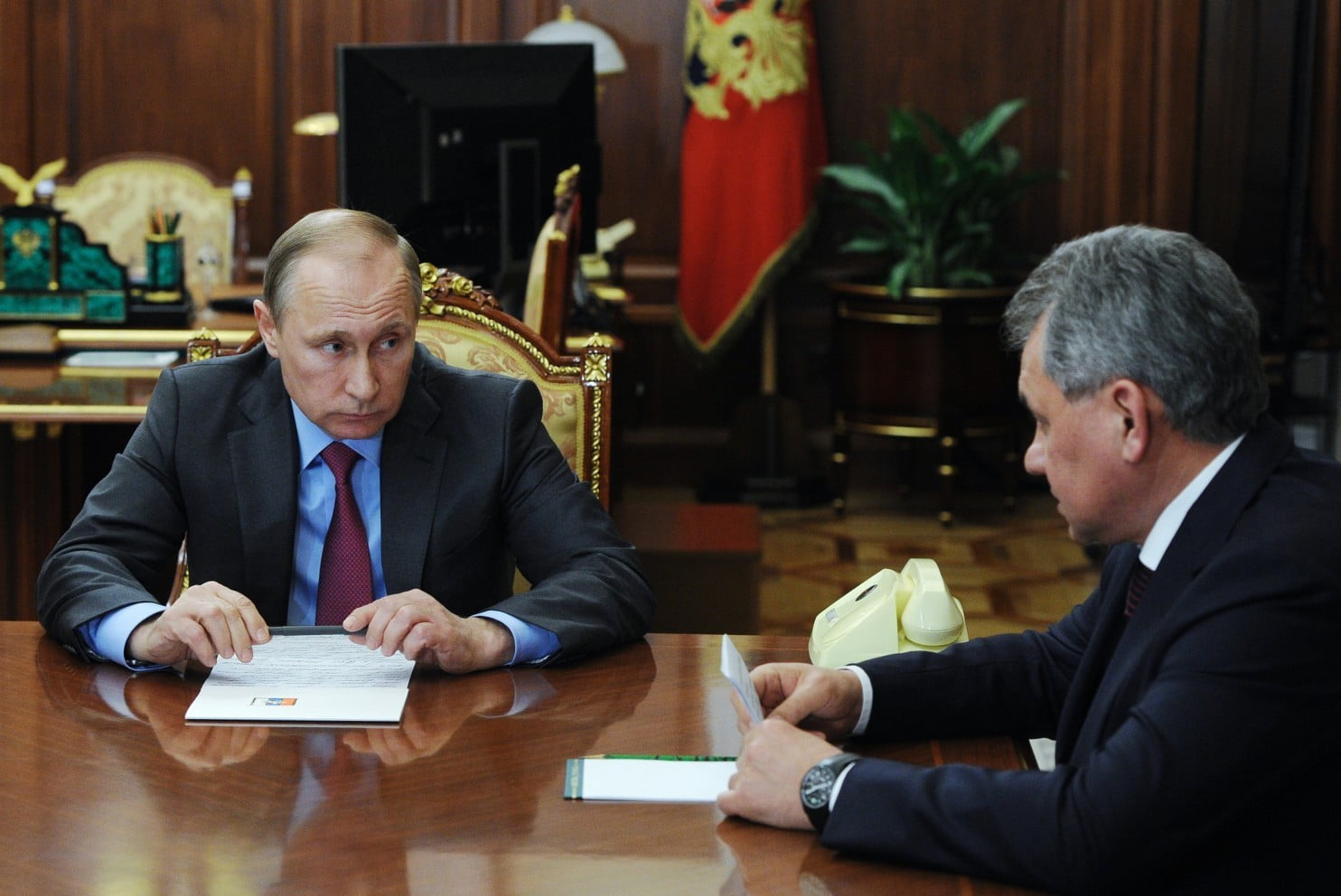
MOSCOW – Russian President Vladimir Putin announced Monday that Russia would begin pulling its military from Syria, potentially winding down nearly six months of airstrikes that bolstered Syrian President Bashar al-Assad and dealt a grave blow to Syrian rebels.
Putin late Monday said that Russia would withdraw the “main part” of the military deployment to Syria, starting Tuesday.
“I hope that today’s decision will be a good signal for all parties to the conflict,” Putin said in a meeting with top deputies that was broadcast on Russian state television late Monday. “I hope that this will considerably increase the level of trust between all parties of the Syrian settlement and will contribute to a peaceful resolution of the Syrian issue.”
Putin said that Russia would keep open both Russian air force and naval bases in Syria, but he said that the task of the Russian intervention had been achieved, and that diplomacy should now take over. A shaky cease-fire has quelled fighting in Syria, although it has not fully stopped.
The surprise announcement came as U.N. envoy Staffan de Mistura reconvened peace talks between the Assad government and the opposition in Geneva on Monday. The decision appeared at least in part to have the effect of increasing pressure on Assad to reach a diplomatic resolution of the conflict.
The Kremlin said that Putin had spoken to Assad by telephone on Monday to inform him of his decision.
“The leaders noted that the action of the air force of Russia had radically changed the situation in the fight against terrorism, disrupting the fighters’ infrastructure and inflicting significant damage,” the Kremlin said in a statement.
Russian Defense Minister Sergey Shoigu said that during the Russian airstrike campaign, Syrian forces had been able to recapture 400 populated areas over nearly 4,000 square miles of territory. The Russian intervention turned the course of the conflict after Assad appeared weakened and on the verge of defeat over the summer. By February, the Syrian army was surging forward and had nearly encircled the rebel bastion of Aleppo.
The Obama administration had become increasingly frustrated in recent days over what it sees as Russia’s inability or unwillingness to press Syrian government forces to adhere to the cease-fire there. Officials cited an overall decrease in violence of 80 to 90 percent, including a virtual halt to Russian airstrikes in opposition areas. To the extent that military operations are continuing, officials said, nearly all have been conducted by the Syrian military and its Iranian and Hezbollah allies.
Late last week, the administration decided to publicly accuse Moscow of failing to rein in Assad, leading to a string of comments by officials that culminated in a call by Secretary of State John F. Kerry on Sunday for Putin to take control of Russia’s Syrian ally. By signing on the international agreement backing a ceasefire, he said, Russia and Iran “accepted responsibility for the forces that they control or influence. . . . So President Putin, who is invested in supporting Assad . . . should be somewhat concerned” by the actions of Syrian forces.
Putin’s announcement appeared to take the administration by surprise. Asked during Monday’s regular State Department briefing about the news from Russia, spokesman John F. Kirby said it was the first he had heard of the announcement.
The Obama administration has at times complained of a gap between Russia’s rhetoric and its actions on the ground in Syria, and it was not immediately clear on which side of the field Monday’s announcement would fall. Putin announced at the end of September that the Russian intervention would focus on combating the Islamic State. The Obama administration soon said that the bulk of the airstrikes were being conducted against other rebel forces pushing on Assad, some of whom were supported by the United States. But Russian forces have generally adhered to the cease-fire, which went into effect in late February.
[Source:- The Washington Post]



